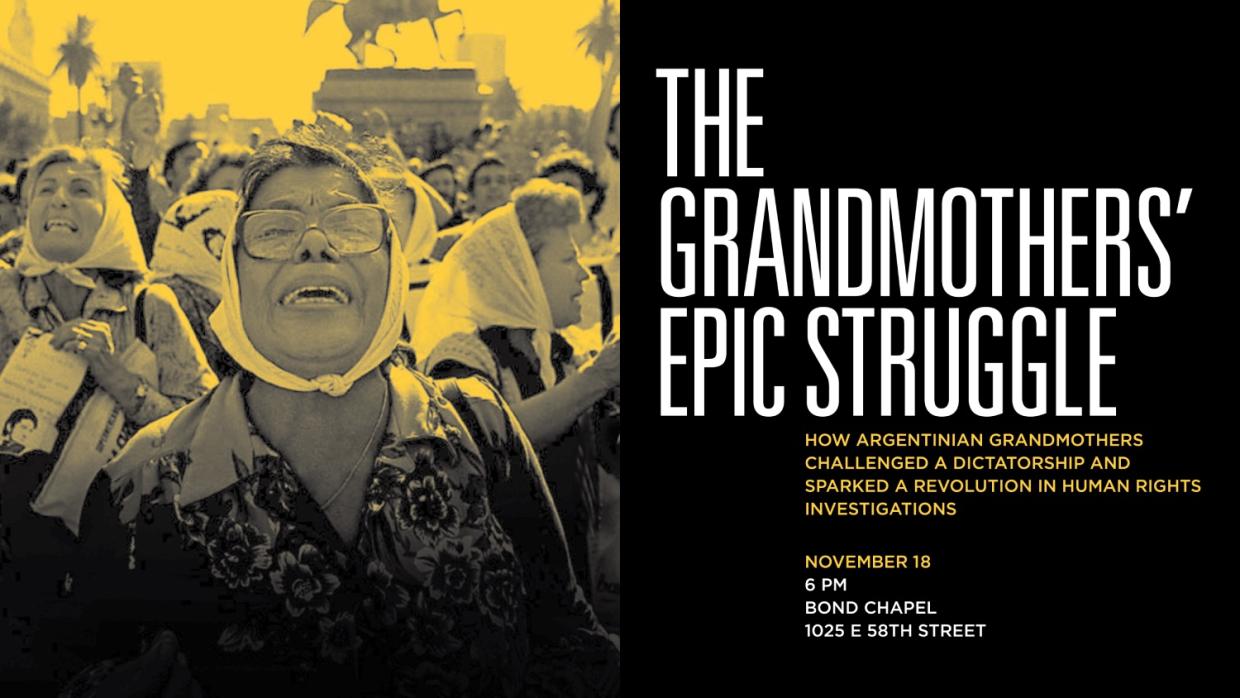How did forensic science come to play such a central role in holding the perpetrators of human rights violations accountable?
Forty years ago, grassroots Argentinian activists and scientists worked together to locate victims of unlawful killings and disappearances during Argentina’s “dirty war.”
Morris Tidball-Binz (UN Special Rapporteur for Extrajudicial, Summary, or Arbitrary Executions and co-founder and first director of the Argentine Forensic Anthropology Team) will look back on the pioneering forensic methods they developed, which are used today to investigate crimes against humanity worldwide.
He will be joined by Anjli Parrin, director of the Law School’s Global Human Rights Clinic, who conducts and trains others to do international human rights investigations, and Claudia Poblete, a member of the board of directors of Argentina’s Grandmothers of Plaza de Mayo, who was kidnapped as a child and reunited with her family thanks to the efforts of the grandmothers.
Before the UChicago event, Claudia will testify at the Inter-American Commission on Human Rights about the Argentinian government's growing slander campaigns against the Grandmothers and other mainstream human rights organizations who oppose the government's attempts to grant amnesty to perpetrators of grave human rights violations.
(This event is complemented by a Nov 19 screening of El Equipo, a documentary about the formation, legacy, and ongoing work of the Argentine Forensic Anthropology Team.)

